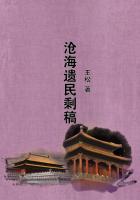Alch: Thou always speakest riddles.Tell me if thou art that fountain of which Bernard Lord Trevizan writ?
Merc: I am not that fountain, but I am the water.The fountain compasseth me about.
Sandivogius, "New Light of Alchymy."
The Prince di -- was not a man whom Naples could suppose to be addicted to superstitious fancies.Still, in the South of Italy, there was then, and there still lingers a certain spirit of credulity, which may, ever and anon, be visible amidst the boldest dogmas of their philosophers and sceptics.In his childhood, the prince had learned strange tales of the ambition, the genius, and the career of his grandsire,--and secretly, perhaps influenced by ancestral example, in earlier youth he himself had followed science, not only through her legitimate course, but her antiquated and erratic windings.I have, indeed, been shown in Naples a little volume, blazoned with the arms of the Visconti, and ascribed to the nobleman I refer to, which treats of alchemy in a spirit half-mocking and half-reverential.
Pleasure soon distracted him from such speculations, and his talents, which were unquestionably great, were wholly perverted to extravagant intrigues, or to the embellishment of a gorgeous ostentation with something of classic grace.His immense wealth, his imperious pride, his unscrupulous and daring character, made him an object of no inconsiderable fear to a feeble and timid court; and the ministers of the indolent government willingly connived at excesses which allured him at least from ambition.
The strange visit and yet more strange departure of Mejnour filled the breast of the Neapolitan with awe and wonder, against which all the haughty arrogance and learned scepticism of his maturer manhood combated in vain.The apparition of Mejnour served, indeed, to invest Zanoni with a character in which the prince had not hitherto regarded him.He felt a strange alarm at the rival he had braved,--at the foe he had provoked.When, a little before his banquet, he had resumed his self-possession, it was with a fell and gloomy resolution that he brooded over the perfidious schemes he had previously formed.He felt as if the death of the mysterious Zanoni were necessary for the preservation of his own life; and if at an earlier period of their rivalry he had determined on the fate of Zanoni, the warnings of Mejnour only served to confirm his resolve.
"We will try if his magic can invent an antidote to the bane,"said he, half-aloud, and with a stern smile, as he summoned Mascari to his presence.The poison which the prince, with his own hands, mixed into the wine intended for his guest, was compounded from materials, the secret of which had been one of the proudest heir-looms of that able and evil race which gave to Italy her wisest and guiltiest tyrants.Its operation was quick yet not sudden: it produced no pain,--it left on the form no grim convulsion, on the skin no purpling spot, to arouse suspicion; you might have cut and carved every membrane and fibre of the corpse, but the sharpest eyes of the leech would not have detected the presence of the subtle life-queller.For twelve hours the victim felt nothing save a joyous and elated exhilaration of the blood; a delicious languor followed, the sure forerunner of apoplexy.No lancet then could save! Apoplexy had run much in the families of the enemies of the Visconti!
The hour of the feast arrived,--the guests assembled.There were the flower of the Neapolitan seignorie, the descendants of the Norman, the Teuton, the Goth; for Naples had then a nobility, but derived it from the North, which has indeed been the Nutrix Leonum,--the nurse of the lion-hearted chivalry of the world.
Last of the guests came Zanoni; and the crowd gave way as the dazzling foreigner moved along to the lord of the palace.The prince greeted him with a meaning smile, to which Zanoni answered by a whisper, "He who plays with loaded dice does not always win."The prince bit his lip, and Zanoni, passing on, seemed deep in conversation with the fawning Mascari.
"Who is the prince's heir?" asked the guest.
"A distant relation on the mother's side; with his Excellency dies the male line.""Is the heir present at our host's banquet?""No; they are not friends."
"No matter; he will be here to-morrow."
Mascari stared in surprise; but the signal for the banquet was given, and the guests were marshalled to the board.As was the custom then, the feast took place not long after mid-day.It was a long, oval hall, the whole of one side opening by a marble colonnade upon a court or garden, in which the eye rested gratefully upon cool fountains and statues of whitest marble, half-sheltered by orange-trees.Every art that luxury could invent to give freshness and coolness to the languid and breezeless heat of the day without (a day on which the breath of the sirocco was abroad) had been called into existence.
Artificial currents of air through invisible tubes, silken blinds waving to and fro, as if to cheat the senses into the belief of an April wind, and miniature jets d'eau in each corner of the apartment, gave to the Italians the same sense of exhilaration and COMFORT (if I may use the word) which the well-drawn curtains and the blazing hearth afford to the children of colder climes.
The conversation was somewhat more lively and intellectual than is common amongst the languid pleasure-hunters of the South; for the prince, himself accomplished, sought his acquaintance not only amongst the beaux esprits of his own country, but amongst the gay foreigners who adorned and relieved the monotony of the Neapolitan circles.There were present two or three of the brilliant Frenchmen of the old regime, who had already emigrated from the advancing Revolution; and their peculiar turn of thought and wit was well calculated for the meridian of a society that made the dolce far niente at once its philosophy and its faith.















